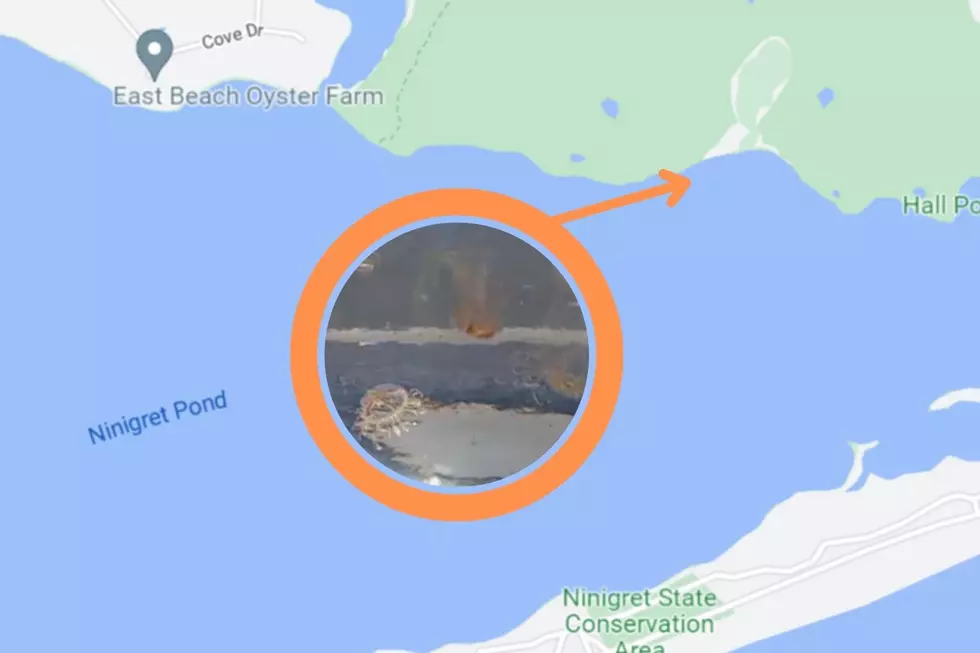
Clinging Jellyfish Warning Issued by Rhode Island DEM
The Rhode Island Department of Environmental Management (RIDEM) is putting residents on high alert for tiny, dime-sized jellyfish that can pack a serious sting.
Known as clinging jellyfish because of the sticky pads on their tentacles that allow them to anchor to seagrasses and seaweeds, they have been spotted in several Rhode Island ponds already this season.
They may not seem like much. They are super-small with an orange-brown cross in the center of their see-through bodies, but many people and pets can be allergic to their sting and some can even be hospitalized by it.
Typical symptoms include pain and redness at the sting site, though some report respiratory and neurological problems. Dogs have even been known to suffer from allergic-reaction swelling and shortness of breath from clinging jellyfish stings.

Basically, a layer of protection when in the water where seaweed and seagrass could be hiding these jellyfish is your best bet. RIDEM says "boots, waders and wetsuits" are your strongest protection adding that those hitting the beach or surfing the waves are at much less risk.
Clinging jellyfish prefer calm waters with aquatic vegetation. They are not typically found at beaches due to the strong ocean waves, though calmer beach waters could attract a clinging jellyfish or two.
Mainly pond waters are where you will find them, so fishermen wading in to catch something or quahoggers trying to dig up dinner really need to be aware. Pet owners should also take caution when allowing dogs to splash in seagrass-filled waters. They, too, can be stung and have serious reactions.
Only Ninigret Pond in Charlestown and Potter's Pond in South Kingstown have reports of clinging jellyfish as of July 5, though more may appear as the summer season rolls on.
Harsh Realities About New England Beaches
More From WFHN-FM/FUN 107









